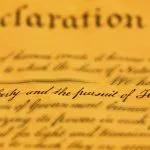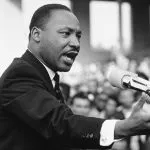Introduction
War has been an inescapable part of human history, yet the moral and ethical questions surrounding warfare have persisted for centuries. How do we determine whether a war is justifiable? Is there ever a moral way to wage war? These questions have given rise to the Just War Theory, a framework that seeks to establish ethical guidelines for engaging in and conducting war. The theory has evolved over centuries, shaped by philosophers, theologians, and political thinkers. This post explores the origins, key contributors, and the necessity of Just War Theory throughout history.
Origins of Just War Theory
The concept of Just War Theory can be traced back to ancient philosophy and religious traditions, particularly in Western and Eastern thought. Although war has existed as long as humanity itself, early civilizations sought to justify and regulate warfare within moral and ethical constraints.
Ancient Foundations
- Ancient Greece and Rome: Greek philosophers such as Plato and Aristotle discussed the morality of war. Aristotle, in particular, argued that war should serve a higher purpose, such as securing peace or defending the state. The Roman Republic and Empire also developed ideas about justified warfare, particularly in terms of self-defense and expanding civilization under a legal framework.
- Hinduism and the Mahabharata: The Hindu epic Mahabharata (written around 400 BCE) contains discussions on ethical warfare, emphasizing duty (dharma) and the idea that warriors should follow strict rules of engagement.
- Christianity and St. Augustine: The first major systematic discussion of Just War Theory in the Christian tradition came from St. Augustine of Hippo (354–430 CE), who introduced the idea that war could be justified under certain moral conditions. He argued that a war waged to restore peace and order could be deemed just, provided it was conducted with the right intention and by legitimate authorities.
Key Contributors to Just War Theory
As human societies evolved, so did Just War Theory. Some of the most significant contributors to its development include:
St. Augustine (354–430 CE)
- Augustine was among the first to systematically define conditions for a Just War.
- He proposed that war should only be waged for a rightful cause, under a legitimate authority, and with the aim of restoring peace.
- He emphasized that war should not be driven by personal gain, revenge, or unnecessary cruelty.
St. Thomas Aquinas (1225–1274 CE)
- In the 13th century, St. Thomas Aquinas expanded Augustine’s ideas, incorporating Aristotelian ethics into Christian theology.
- In his work Summa Theologica, Aquinas outlined the three fundamental criteria of a Just War:
- Legitimate Authority: Only a lawful ruler or government can declare war.
- Just Cause: The war must be in response to a genuine wrong, such as self-defense or punishing an aggressor.
- Right Intention: The war must be fought with the goal of achieving peace and justice, rather than for power or greed.
Francisco de Vitoria (1492–1546) and the School of Salamanca
- A Spanish theologian and jurist, Vitoria is considered one of the founders of international law.
- He argued that war should only be fought under strict moral and legal guidelines, condemning wars of conquest and emphasizing the rights of indigenous peoples during European colonization.
Hugo Grotius (1583–1645) and the Secularization of Just War Theory
- Grotius, a Dutch legal scholar, secularized Just War Theory by moving it away from purely religious justifications and grounding it in natural law and human reason.
- His book On the Law of War and Peace (1625) became foundational in international law, arguing that war should be governed by rules applicable to all nations, regardless of religion.
Modern Contributions and the Geneva Conventions
- The Geneva Conventions (1864–1949) and other international treaties formalized principles of Just War Theory into modern law.
- These agreements established rules for protecting civilians, treating prisoners of war humanely, and banning inhumane weapons like chemical warfare.
- The development of institutions like the United Nations and International Criminal Court further enforced these principles globally.
Why Was Just War Theory Needed?
Throughout history, wars have been waged for numerous reasons—some justified, many not. Just War Theory emerged out of a necessity to establish moral and legal boundaries for warfare. Here’s why it was and continues to be essential:
1. Preventing Unjust Aggression
Without ethical constraints, war could be waged for personal gain, territorial expansion, or revenge. Just War Theory set moral limits to prevent wars of conquest and unnecessary violence.
2. Protecting Non-Combatants
One of the key principles of Just War Theory is distinction, which requires combatants to differentiate between enemy forces and civilians. This principle has been fundamental in shaping modern laws of war and humanitarian protections.
3. Establishing Rules for Warfare
Before Just War Theory, warfare often had no clear ethical or legal guidelines. This led to brutal wars without any consideration for justice. By formalizing the principles of Just War, civilizations created standards for ethical conflict resolution.
4. Regulating Warfare Among Nations
Just War Theory influenced the development of international law, ensuring that nations had a shared understanding of what constitutes a just cause for war. This was crucial for diplomatic relations, preventing unnecessary wars.
5. Addressing Moral Dilemmas in Modern Warfare
With the advent of nuclear weapons, cyber warfare, and drone warfare, new ethical dilemmas have arisen. Just War Theory continues to evolve to address these challenges, providing guidance on the morality of military actions in the modern world.
Final thoughts
Just War Theory has played a crucial role in shaping military ethics, international law, and the moral understanding of warfare. From St. Augustine and Aquinas to Grotius and modern international law, the theory has evolved to meet the changing nature of conflict. As war continues to be a reality in human history, the need for ethical considerations remains as urgent as ever.
Despite its challenges and criticisms, Just War Theory provides a framework for justice, accountability, and ethical warfare, reminding us that even in war, morality should never be abandoned.





